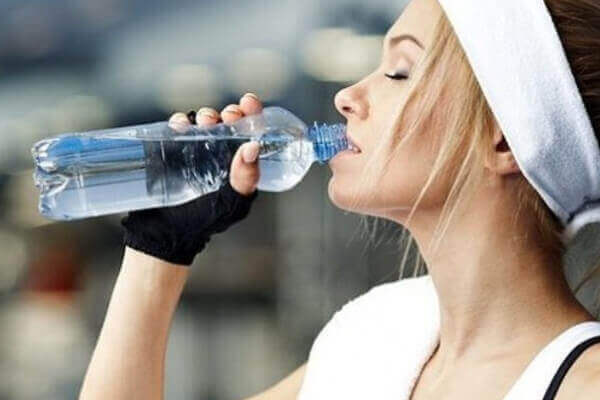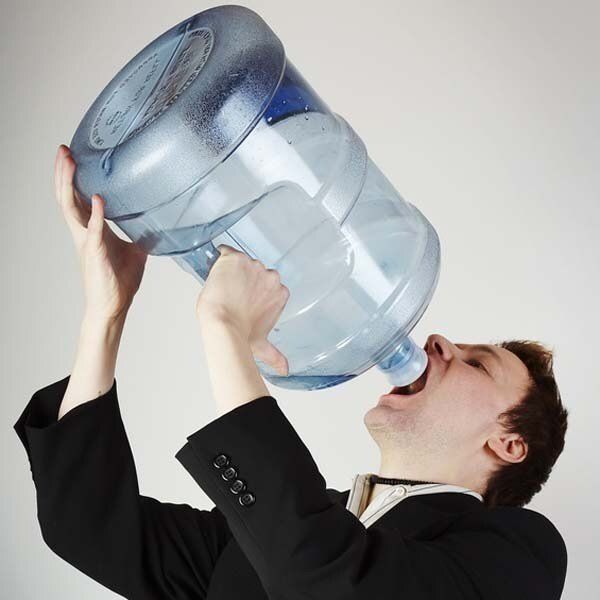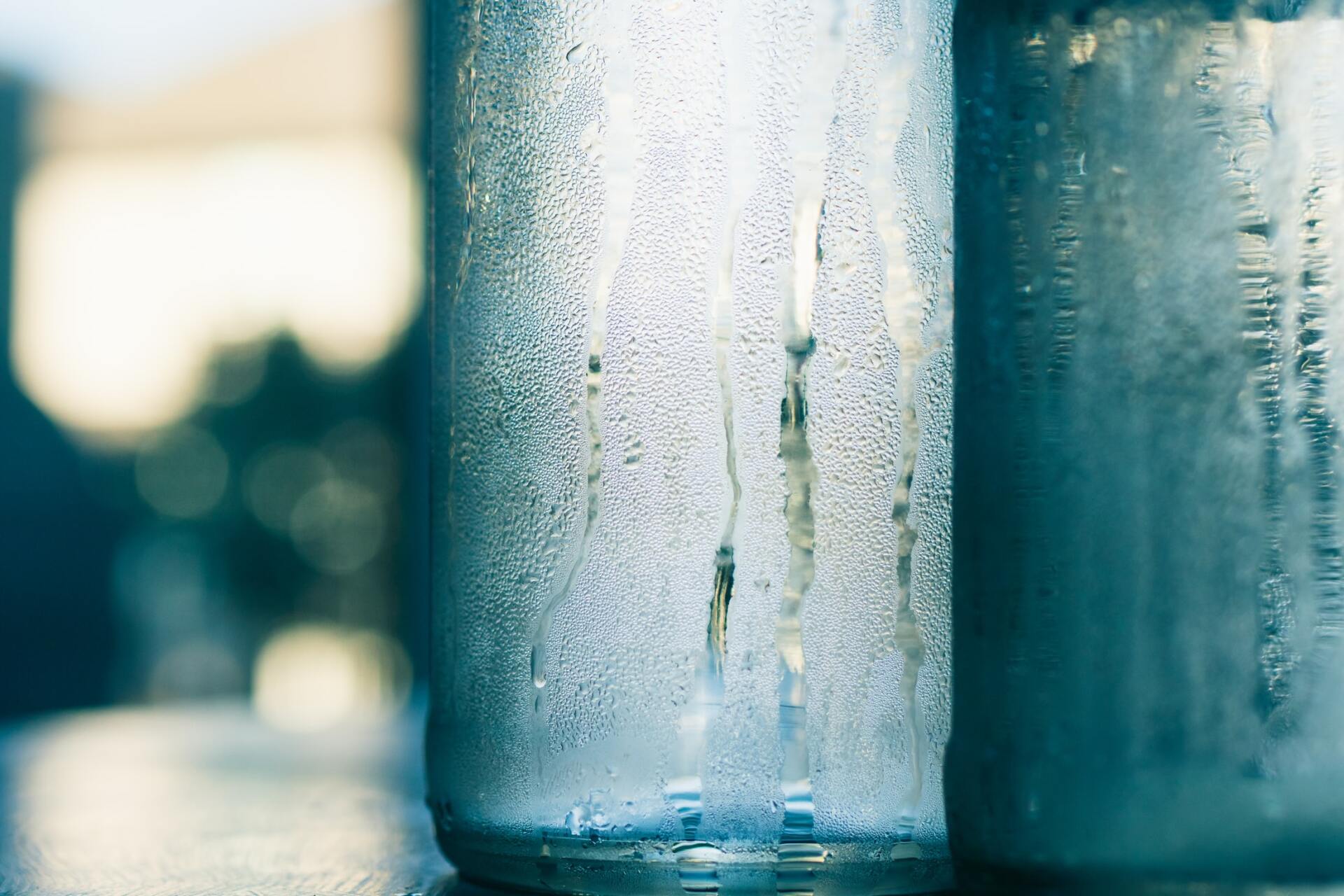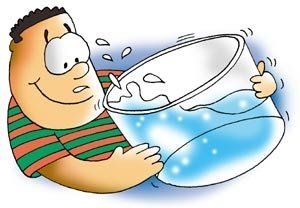Can You Drink Too Much Water?
You’ve heard it practically your whole life:
“hydrate – hydrate – hydrate!” But is there a limit? Can you drink
too much
water?
Actually, you CAN over-hydrate!
Everybody knows that while working in the hot sun, drinking enough water is vital. We’re told it relieves fatigue, sore muscles, and dry skin. In fact,
a new study reports a link between poor hydration and an higher risk of chronic health problems and advanced aging.
But what does medical research tell us about drinking water, especially about drinking too much of it?
How times have changed
Our attitudes toward drinking water have changed in the past couple hundred years. In the 1840’s,
Vincent Priessnitz, founder of
hydropathy (the treatment of illness using water) said that only poor, destitute people would drink water to satisfy their thirst. Even then, they would drink water only when they
had to.
Fast-forward to 2016, and bottled water became the most consumed beverage in the United Sates. It even surpassed sales of soda. And who hasn’t seen ads about drinking plenty of water to maintain good health? We’re told that hydration is the most important health item on the list. As a result, water bottles are everywhere. Everybody is hydrating – hydrating – hydrating!
Historic advice
Our water drinking habits are the fallout of a decades-old idea about water consumption. Historically, we’ve been advised to consume 8 or more glasses of water per day for good health. That’s about 100 ounces. (A gallon is 128 ounces.) And we’re told we must drink whether we like it or not.
But here’s the problem: there’s almost no scientific evidence to base that upon!
This advice all started about 75 years ago. The National Research Council’s Food and Nutrition Board recommended that adults drink one milliliter of fluid for every calorie of food eaten. This means about 8 and 10 cups of water for men and women, respectively, on a 2,000 calorie diet.
Then, the book
Nutrition for Good Health
hit the stores. It was written by respected nutritionists Margaret McWilliams and Frederick Stare. It was a bestseller, and it also recommended the same amount of daily water intake.
These two publications influenced doctors and the public for the next half century. But were their recommendations correct? Scientists now say "not really".
New guidelines
Today, the CDC receives guidance for drinking water from the
National Academies of Science, Engineering and Medicine. They say that most healthy people meet their daily hydration needs by letting thirst be their guide.
Moreover, they say that there are no “exact requirements for drinking water”. But they have some recommendations for consuming it. It combines fluid intake from all consumed beverages, fruits, and vegetables. They say an adequate daily fluid intake for adults is:
- 15.5 cups for men
- 11.5 cups for women
Most importantly, they say even though there's no reason to drink more than that, there's no upper limit for drinking pure water (within reason, of course). But adjustments should be made for abnormal conditions like pregnancy, heart or lung problems, kidney disease, etc.
We're told water is important, so drink a lot
Life is impossible without water. Two thirds of the human body is made of water. It transports nutrients and removes wastes from just about everywhere in the body. It regulates metabolism, temperature, and is involved in almost every biochemical reaction in our cells.
Of course water is very important. And since it was thought drinking too much water was impossible, the idea of staying hydrated - even over-hydrated - seemed logical.
That’s where the faulty notion originated, about staying hydrated instead of becoming dehydrated and then catching up.
How much water do we actually need?
We need water to replenish that which is lost. On average, we lose up to 8 cups of water per day just by breathing, sweating, and excretion. That’s about 1.5% of our body’s water. When we reach that level of loss, the water must be replaced.
Dehydration is just beyond that point. Too much dehydration can cause tiredness, dizziness, dry mouth or lips, fainting, and cardiac arrest. But we get thirsty well before that 1.5% level is reached.
Before your body reaches that level of dehydration, protective mechanisms kick into action. The brain detects when the body is even slightly dehydrated. Then it trips mechanisms to cause thirst.
Thirst is the first safety measure used. It stimulates drinking water. With more dehydration the brain trips even more radical mechanisms to conserve water. This means limiting any sweating and making your kidneys conserve water.
Experts agree we don’t need any more fluid than the amount our bodies signal for when we’re thirsty.
Don’t second guess your brain
Our brain is a well-tuned "water level monitor". That’s why being thirsty is the body’s FIRST signal that we need water – not the last.
Therefore, the outdated “drink 8 cups of water per hour” rule is completely wrong. It used to imply that when we felt thirst, we were very dehydrated (enough to be dangerous). But that’s clearly not the case.
Also,
water intake recommendations are will vary depending on your age, sex, and activity level. Dr. Irwin Rosenburg from the Neuroscience and Ageing Laboratory at Tufts University (Massachusetts) says, “The control of hydration is some of most sophisticated things we’ve developed in evolution, ever since ancestors crawled out of the sea and onto land. We have a huge number of sophisticated techniques we use to maintain adequate hydration.”
In other words, your body will tell you when you need water.
What about drinking too much water?
OK, so our bodies tell us we’re beginning to dehydrate by signaling thirst. And everybody knows the feeling of being “real thirsty” and gulping down water. This might be the early stage of mild dehydration.
You want to avoid mild dehydration. At or below the 1.5% water mark, mild dehydration means your brain is affected. You get dizzy and it’s hard to perform simple problem solving. But again, this is when you’re at the super-thirsty levels.
On the other side of the spectrum, most believe over-hydration (drinking more water than our body signals is needed) isn’t harmful. So they see no downside to drinking too much water. But that’s incorrect, too.
Over-hydration may be as bad as dehydration.
Drinking far too much water than you need can be dangerous. It can dilute sodium in the blood, a condition called hyponatremia or water intoxication. That causes serious lung and brain swelling.
In fact, in the past 10 years, at least 15 athletes died from over-hydration during athletic practice. Perhaps they drank too much water as a precaution against feeling thirsty, but nobody knows for sure.
So how much is "too much" water?
We see people on the go drinking from water bottles every day. That’s probably not dangerous, but it’s also clearly too much water.
Dr. Hugh Montgomery, Research Director at the
Institute for Sport, Exercise and Health
in London says, “The maximum a person in the hottest possible heat in the middle of the desert might sweat is two liters (about 8 cups) in an hour, but that’s really hard to do.”
In other words, to replace even that extreme water loss, you don’t need to carry a water bottle around -- especially for an hour’s car ride, even on the hottest day. You simply won’t sweat off that much water.
But experts say we should play it smart:
- Don’t allow your body to go into mild dehydration (dizziness).
- Be mindful that dehydration requires more water loss than you think.
- Let your thirst guide you to drink the amount of water you need.
- Make adjustments for your body size, gender, age, environment, and what you’re doing physically.





